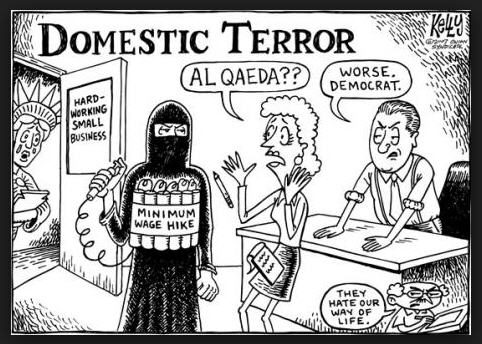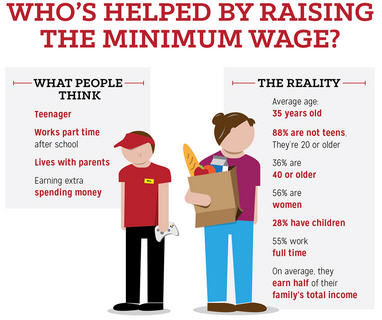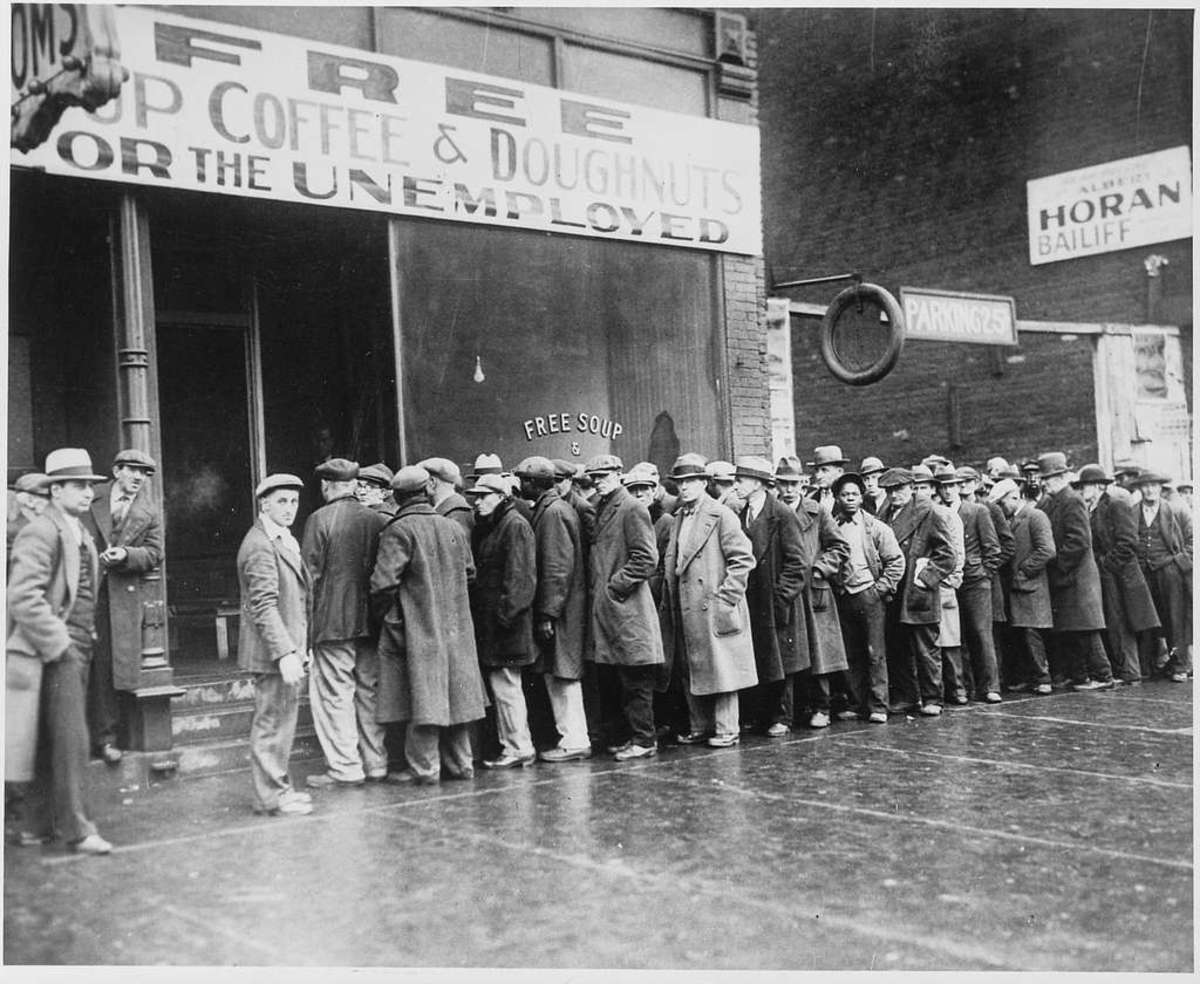The Great Minimum Wage Debate


It is a hot topic and unless you have never had to work for so little, you must have sympathy for those workers. Imagine earning only $64 in a day, paying $1000 for rent. Per month, at that wage, one earns only $1280 a month gross before taxes. One can see that even getting food, water, electricity, will be difficult to meet. The same problem continues at what the more average real minimum wage is of $10 hr. But, in order to live the USA, one needs to make at least $10 per hour.
Many counties and cities are fed up with the $8 min. federal wage law, which has not been updated since 1990 or so. Many more wealthy areas are passing ordinances and local laws increasing the min. wage for workers there between $12-15 hr. Los Angeles, San Francisco and Seattle are leading the way and by 2020, anyone working in those cities will get at least $15 per hour. Chicago just increased their min. wage to $13 and New York City is planning to follow the West Coast by increasing its min. wage to $15.
Studies show the minimum wage of $8-9 per hr. in the USA is less than required to survive. In California, a study showed that two parents with two kids need to earn at least $85,000 to be above poverty levels. That means, both must earn around $20 per hr., or some combination that equals $40 an hour. The cost to increase the min. wage for a county is small. In one study, a typical county has around 5500 workers, increasing their wages to a min. of $15 an hour would cost the county budget $11 million of its $1.4 billion in revenue. That is less that 1%! Santa Clara county recently passed its own min. wage of $19 an hour.
While cities and counties can increase their wage laws, the impact on the small businesses hits harder because they have much smaller profit margins. Those are the voices being heard not to raise the minimum wage laws. That is the dilemma. Some businesses can absorb the higher minimum wages and some cannot.
More and more, county governments and state employment agencies are in favor of raising the wages despite the small business issues. In their eyes, if the area loses a small business because it cannot afford to pay a worker $15 hr., than the city or country is better off without them. But sooner or later, the wages are going to increase across the USA and that is for the better, not worse.








